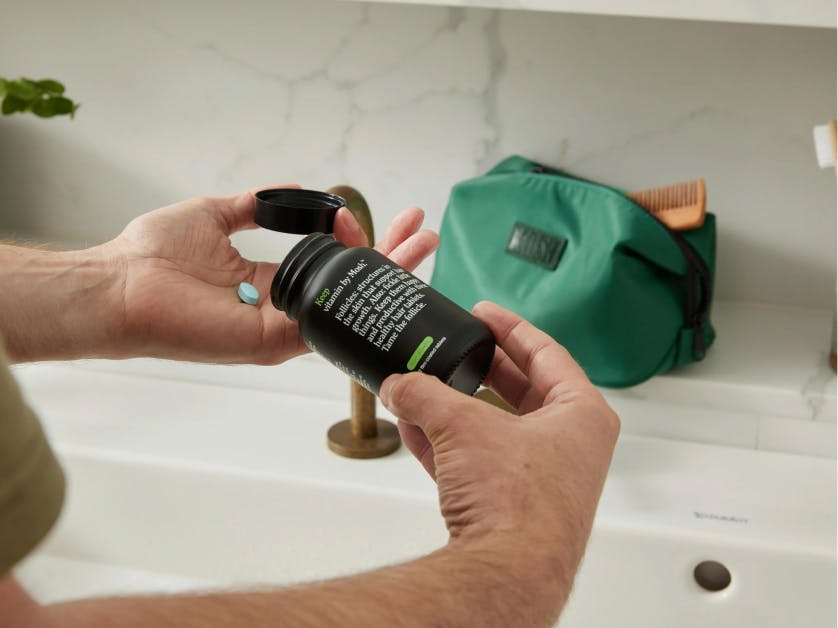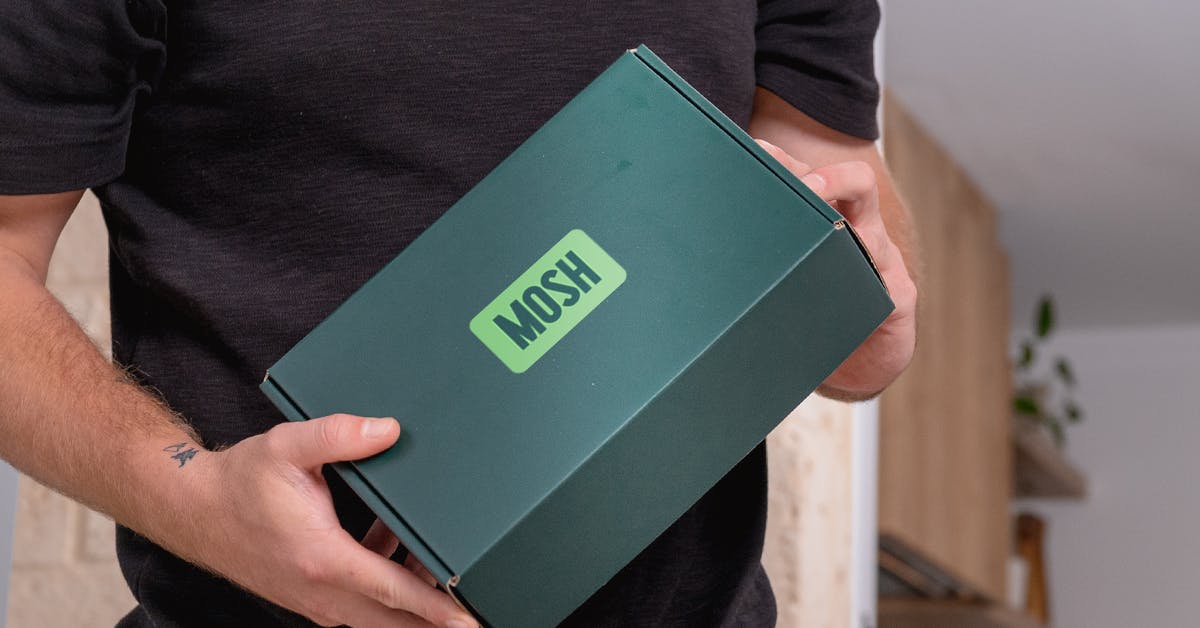What Vitamins & Supplements Should Men Take Daily?
You want to look, feel, and perform the best. That starts with your health. You can’t take action every day to build your life if you feel fatigued, run down, and unmotivated.
The best way to improve your health is through your diet. Make sure you have the following essential vitamins and minerals in your diet. These nutrients will give you the energy and wellbeing you need to seize every day and charge after your goals.
If you don’t consume these vitamins and minerals naturally, pick up some supplements from your local pharmacy. You shouldn’t have a problem finding any of these on the shelf (in fact, most will be in the same daily men’s supplement).
1. Fish Oil
Fish oil contains omega-3 fatty acids, which reduces your triglycerides, lowers your blood pressure, and keeps your heart beating properly. There is also evidence that it helps your brain, prevents cardiovascular disease, decreases inflammation and joint pain, and reduces the likelihood of metabolic syndrome. [1]
Where to get it: Omega-3s are found in flaxseed, chia seeds, sardines, walnuts, kale, fortified orange juice, and bread, as well as most types of fish. You can also take a daily supplement. Healthy guys require about 1,000 mg/day. If you have heart problems, you may need as much as 4,000 mg/day, but talk to a doctor first.
These nutrients will give you the energy and wellbeing you need to seize every day and charge after your goals.
2. Potassium
Potassium improves your cardiovascular health, bone health, and metabolism. It can stabilize your blood pressure, assist with digestion, and prevent muscle spasms. This problem affects men disproportionately, so you’ll want plenty of potassium in your diet, especially if you take medications to treat high blood pressure, diabetes, or coronary heart disease.
Where to get it:
You can add more potassium to your diet by eating sweet potatoes, bananas, salmon, avocados, beans, and grass-fed beef. You can also get them from daily supplements.
3. Vitamin D
Vitamin D plays a key role in your testosterone production. [2] A lack of vitamin D can cause low testosterone, which will make you fatigue, reduce your libido, depress your metabolism, and make you prone to a variety of health issues. Vitamin D also supports heart health and strong bones, reduce the risk of certain cancers, and prevents diabetes, all of which are important for older guys.
Where to get it:
There aren't many dietary sources of vitamin D, but you can find it naturally in fatty fish like sardines and salmon. You can also consume foods that are fortified with vitamin D, such as milk, dairy products, and cereals. Amazingly, your skin can produce vitamin D from sunlight, so gets plenty of sun. Of course, you can also get it through supplements. You need about 400-800 IUs, depending on your age.

4. Magnesium
Magnesium is an electrolyte mineral that plays a role in your overall health. It's important for protein synthesis, nerve function, glucose control, and over 300 chemical processes. It can also support testosterone production and efficiency, healthy sleep, sexual health, and your muscles.
Integrative physician Dr. Jeffrey Gladd says, “I find so many patients feeling better when they add magnesium to their supplement regimens. The most common reasons that I will recommend a patient I am working with to take magnesium for are heart palpitations, anxiety, muscle cramps, or constipation.”
Where to get it:
You can add more magnesium to your diet by eating almonds, black beans, nuts, seeds, bananas, and leafy green vegetables. You can also get it from supplements. Men need about 400 mg/day. Taking magnesium is especially effective when coupled with moderate exercise.
5. Saw Palmetto
Saw palmetto is a traditional remedy for prostate, reproductive, and urinary tract health. It comes from a shrub with dark berries that's native to the United States, Europe, and Africa. It's been used by native peoples for hundreds of years. There’s even some evidence that you can treat hair loss with saw palmetto.
Where to get it:
Saw palmetto won’t appear in a typical diet, so you’ll have to purchase a supplement from a reputable company. The bottle label should state that the contents are 85% to 95% fatty acids and sterols. The label should also use the word “standardised,” meaning every bottle contains the same ingredients.
6. Creatine
Creatine isn't a vitamin or mineral. It’s an amino acid. But it’s important for men so we didn't want to leave it off our list. It occurs naturally in your muscle cells. Its job is to increase your ability to produce energy, which ultimately increases how fast your muscles grow.
Where to get it:
You’ll find creatine in red meat and seafood. You need about 5 grams/day, but your body can absorb more if you strength train frequently. If you want it as a supplement, you can take it as a capsule or as a powder that you mix into a shake.
7. Vitamin B12
Men tend to consume the right amount of vitamin B12 every day, but they often have trouble absorbing it properly due to medication use. Drugs that block acid, lower blood pressure, and fight diabetes can disrupt B12 metabolization. This is especially problematic for men 40+ who tend to take these kinds of medications.
B12 deficiency can create problems with your central nervous system, make you feel fatigued, cause you to lose weight, and create neurological problems, like dementia, memory loss, confusion, and balance issues.
Where to get it:
Other than supplements, you can get vitamin B12 from most animal proteins, like beef, salmon, clams, trout, tuna, liver, and lamb. You can also get it from yogurt and cheese. You need 2.4 mcg/day. Don’t be fooled by “500 mcg” supplements, however, because you can only absorb about 10 mcg in a day.
8. Vitamin K
Vitamin K is critical for building and sustaining your bones, preventing heart disease, and blood clotting. You may be vitamin K deficient if you don't eat a lot of vegetables, struggle with intestinal problems (like IBS), or have been taking antibiotics for a long time or other medications for a long time.
Where to get it:
You’ll find vitamin K in green vegetables like collards, cabbage, broccoli, and spinach. you can also find it in wild fish and eggs.

9. Iron
Iron is an exceptionally important mineral because it helps carry oxygen in your blood from your lungs to the rest of your body. There’s also iron in your muscle cells. If you don't have enough iron, you can't move blood through your body efficiently. This is why a lack of iron can make you fatigued, dizzy, pale, and give you headaches.
Where to get it:
You need about 8 mg of iron every day. You can get it from beef liver, dark green vegetables, tomatoes, potatoes, nuts, beans and legumes oysters, dark chocolate, and iron-fortified foods. Iron is typically included in men's daily supplements.
10. Vitamins A, E, and C (Antioxidants)
Free radicals speed up aging through a process called oxidative stress. They also increase men’s risk of cancers, heart disease, vision problems, and cognitive decline. Antioxidants like vitamins A, E, and C protect your healthy cells, prevent mutations and tumour growth, and limit damage to your arteries, muscles, cartilage, and other tissues.
Signs of vitamin A and E deficiency are dry skin, sensitivity to light, and poor vision. You’re low on vitamin C if your immune system doesn’t seem to work well, you feel fatigued all the time, or your gums or nose bleed a lot.
Where to get them:
These three vitamins cannot be made by our body, so we have to get them through our diet or through a supplement. You can get them by eating colourful fruits and vegetables, nuts, and seeds. Spinach, kale, and collard greens are excellent sources of vitamins A and C.
11. Zinc
Zinc is important for a healthy body because it plays a role in cell division and growth, as well as DNA synthesis. It also promotes wound healing and overall immune system health. There's even some evidence that it helps with testosterone regulation. [3]
If you suffer from zinc deficiency, you will deal with problems like hair loss, the loss of your senses of smell and taste, skin blemishes, slow wound healing, and frequent infections. Low zinc levels will literally make you look sick, so you will want to get plenty of this mineral if your appearance is important to you.
Where to get it:
While zinc is found in several plants, it's difficult for your body to use it from those sources. You will want to get your zinc from animal foods, like beef, oysters, and pork. You can also find it in cashews, almonds, and chickpeas. You need about 11 mg/day.
12. Iodine
Iodine’s job in your body used to regulate your hormones, particularly your thyroid hormones. This means it plays a key role in controlling your metabolism. It also supports immune system health. If you don't have enough iodine, you can develop thyroid problems, which may cause you to gain weight or develop an ugly goiter.
Where to get it:
You can get iodine from most seafood, sea plants (e.g. seaweed), yogurt, milk, and enriched bread. You can also get it from iodized table salt. Fortunately, you don’t need much - only 150 mcg/day, which is about 0.25 teaspoons of table salt.
Focus on Your Health
In a perfect world, we would get all the vitamins and minerals we need from our typical diet. But that just isn't the case. If your diet doesn’t include the vitamins and minerals we listed above, you’ll want to compensate with multivitamins or supplements. You need them to support your hair, skin, sexual performance, and overall health.
Good health is critical to happiness and overall satisfaction. The sooner you take care of your health, the sooner you’ll get the life of your dreams.
Ready to optimise your health with the right vitamins and supplements? Take Mosh's quick online health assessment today and receive personalised recommendations from our medical experts.
Start your journey to better health with premium, scientifically-backed supplements tailored to your needs.

